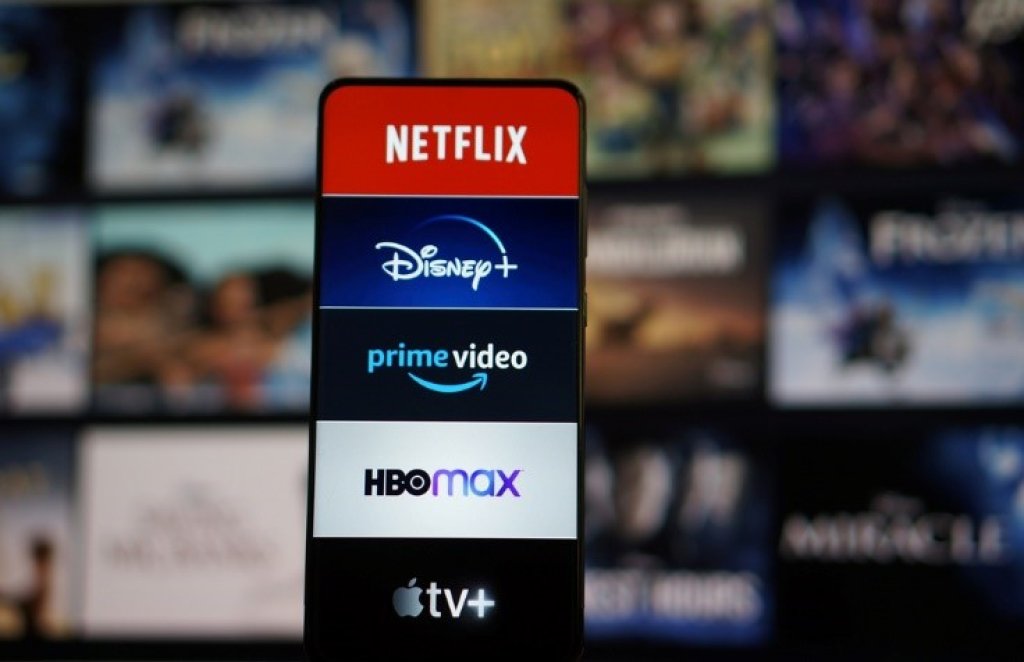A breakout year for Netflix, a continuing surge from Amazon Prime and more eyes on YouTube than ever before, highlights an increase in urgency for streaming platforms to be integrated.
Where we are at?
Following NFL’s groundbreaking Christmas games on Netflix including a stand-out performance by Beyoncé and WWE’s “Raw” to come on the platform, eagle eyes are very keen to see what the future holds.
It’s hard not to be impressed by Jake Paul’s recent fight with Mike Tyson which brought in a total of 72,300 attendees and over 108 million viewers streaming globally, making it the most streamed sporting event in history.
When looking at its competitors, notably YouTube users are now watching sports on the platform in rapidly growing numbers with more than 35bn hours of sport content viewed this year, making a 45% increase on the previous year. The platform also shows select live NFL games, the Women’s Super League, women’s football in England and the F1 Academy.
Separately, Amazon Prime Video has deals to show the UEFA Champions League, the NFL, the French Open and will begin NBA next year. A big player in the market since 2017, it showcases annual Premier league fixtures and its highly attended premier event, Prime Video Presents, has shown seamless integration without issue.
Waiting in the wings, Apple TV+ broadcasts Major League Baseball matches and Major League Soccer in the US. So, it wouldn’t be out of the ordinary to expect more global sporting events to come in the not so distant future.
What’s to come?
It certainly might seem like a race to the top, but it must be recognised more like a marathon.
Key players such as Sky Sports, Eurosport, BBC, ITV, and DAZN still hold substantial weight in the eyes of consumers. This is mainly due to their familiarity, quality, frequency and established relationships with senior sport stakeholders.
However, from a purely sport PR point of view, it is worth pointing out the irregularity of content from streaming platforms might work in their favour because it is a novelty. Therefore, there will always be a curiosity which brings media and fans to the table and more than likely it will co-exist with these wider sport platforms.
It’s also very interesting to note on the difference in approach. Netflix has gone for a more bespoke entertainment angle blending this with headline viral events, whereas Amazon, YouTube and Apple TV+ are focusing on a more traditional sports programme. One must wonder given recent events how this will change in the future.
With a lot of brands focusing on younger audiences, but trying to retain the hardcore fanbase of each sport, it’s a tricky line and it brings curiosity from a viewer perspective on what is most important. It also brings the possibility that headline events guaranteeing high viewership, such as, the FIFA World Cup and Super Bowl will be in the minds of executives.
With great numbers comes great responsibility
Netflix has mentioned that it has up to 260 million paid subscribers in over 190 countries and Amazon Prime Video has more than 200 million monthly viewers.
Those numbers are significant but the content on both platforms is not just sport.
Being truthful, if I have no plans and am just browsing on the platform looking for something to watch and see there is something sport-related to my liking on in the next few days, I more than likely will tune in. The convenience and the sport being on somewhere unfamiliar is what appeals to me from a curiosity standpoint.
This is still early days but to dip one’s toe into live sports broadcast world before committing outright is just part of the learning process to create the ultimate viewing experience, which all these platforms excel at. Naturally the ones who have been doing it longer have a bigger foothold, but it feels like a natural evolution from their current excellent sports programming.
When looking at sport, the landscape has room for more to explore their options and it's going to be a growing process before groundbreaking success is achieved but given the success of Netflix’s programmes “F1: Drive to Survive” and “The Last Dance,” Disney’s “Welcome to Wrexham,” Amazon “Prime’s 99” and “Next Goal Wins,” it should be noted they are already winning the hearts and minds of sport fans, even if it isn’t in the traditional way. This is all part of assimilation that will create more confidence in their live sports broadcasting moving forward.
The final product will evolve naturally, and people will have strong views either way. What’s exciting about this current time is that we are witnessing history. Sport is blending with entertainment, viewing habits are changing and from a media perspective, these events and sports have never been covered in this way before. It’s creating more headlines, strong opinions and more importantly new fans than ever before.

Living in harmony
Keen analysts might have seen that UFC’s current broadcast deal with ESPN is up for renewal at the end of 2025. Dana White (UFC Chief Executive) has mentioned Disney, YouTube, Amazon and Netflix could all be potential successors. That statement alone speaks louder about the future of sports broadcasting than anything else.
It really is a new climate with balancing current trends and looking to what’s next. As PR experts in storytelling, it’s very interesting to solely focus on the success of singular programmes or documentaries. There is more demand for access to athletes beyond the mask than ever before. This type of programming creates a greater pathway for sports fans of all backgrounds and different cultural touchpoints.
We can only expect to see more narratives in different styles rather than outright live sports broadcasting from these streaming platforms. Why end the story at the ring of the final bell, whistle or buzzer, where it can be a new chapter to follow something more interesting.
With less time in our busy schedules and more options to engage, Gen Z or Gen Alpha may prefer to engage in highlights, especially considering if they live in different time zones. Similarly, different countries are still learning sports despite their historic lineage. It’s easy to watch NFL’s “Hard Knocks” but still not understand the intricacies of offsetting penalties, this is the same for fans of “Sunderland ‘Till I Die” and not knowing the offside rule. Accessibility is key to encouraging new fans into any sport.
More options outside of live game experiences can captivate broader audiences. So, it’s safe to say that the status quo might just stay the same but it’s an unpredictable world and given the new developments, 2025 could be a significant year for live sports broadcasting.
It will be a very interesting few months and Hanover Sport will be eagerly awaiting how things develop and affect the future landscape. Sports media’s future will continue to be driven by unpredictability and great storytelling, so if you are a viewer, sit back and enjoy the show.








